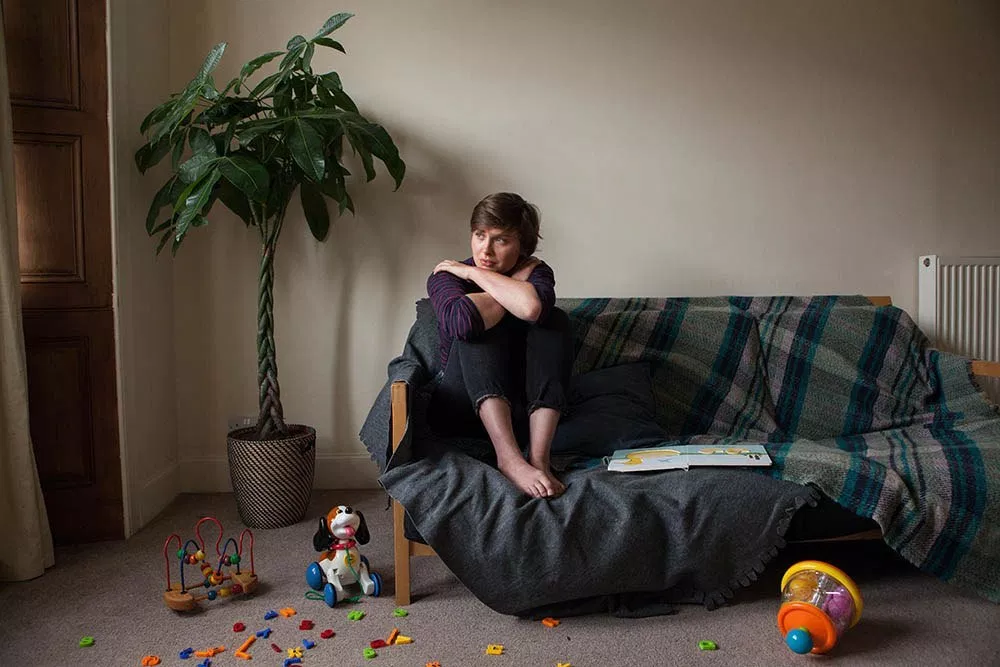Leanna Fairfax: Gender-informed research - meeting the needs of women experiencing homelessness
In a guest blog for CaCHE’s Equality, Diversity and Inclusion series, Leanna Fairfax, draws on her own personal experience to highlight why we need to do more on gender within housing research and policy to ensure that the needs of women experiencing homelessness are met.

The recent report conducted by the Centre for Homelessness Impact and the Centre for Regional Economic and Social Research (CRESR) highlights the need for a gender-informed approach within research to help produce housing policies that work for all.
The reason for this is that men and women experience homelessness differently. Women often have different reasons for becoming homeless, such as links with economic inequality and domestic violence. They also tend to be less visible, not falling into the stereotypical homelessness identity which, in housing, is often focused upon older men with addictions, and instead they opt for ‘non-service’ led options such as sofa surfing or living in inadequate and insecure accommodation. These increase their risk of long-term reoccurring homelessness and means they are less likely to receive the appropriate support (Bimpson et al, 2021.
It’s important to also note that a large majority of women who are homeless have experienced some form of abuse. Research by Agenda shows that a fifth of homeless women have been abused at some point in their lives demonstrates the issues with this (Fotherington et al, 2012). Current homelessness policies fail to recognise the role that violence has on a women’s housing circumstances and outcomes (Bimpson et al, 2021). Thus, the need for gender-informed homelessness research and approaches are imperative.
Through my studies as a PhD student, and having been homeless myself as a result of domestic abuse, I have noticed large gaps within housing research with little representation of my experiences of homelessness. These largely consisted of lack of preventive measures, missed opportunities by agencies poor support, and inadequate housing. This often put me in an extra vulnerable position which made it harder for me to leave my abusive partner. I was scared to leave home, yet home was not a place of safety; it was a vicious circle. While to those on the outside, I was perceived to be housed, further adding to the complexity of my situation. Again, this draws housing back to the stereotypical idea of what homelessness looks like, as it is commonly conflated with that of street homelessness and evokes images of those on the street rather than women in a home. Research conducted by Brotherton and Mayock (2021) highlight this when they state that “systemic and endemic sexism manifests itself in relation to women’s homelessness” (p 5) and I believe this can be reflected in the way homelessness is discussed and written about.
This can be problematic for many reasons, such as the way homelessness is managed especially for lone women without children. Services that are built to support single homeless people are commonly based upon a man’s experiences due to men being overrepresented within this type of homelessness. As a result, women can be placed in inappropriate accommodation such as hostels (Engender, 2020). This is problematic considering that women are more likely to become homeless due to violence perpetrated by a man (Engender, 2020). Meanwhile, women who do have children face the difficulty of being judged on their parenting abilities, and those who are in abusive relationships are at risk of being perceived as putting their children at risk, thus the onus is on the woman to uproot her children.
We need to do more on gender within housing research and policy, and work to ensure that the needs of women experiencing homelessness are met. However, progress is being made and I am glad that this issue is now coming to the forefront of discussions within homelessness. Not only is it refreshing to read research that relates to my experiences, but it also means that homeless and housing policy can start to be more functional for both women and men, providing support and increasing stability and security for all.
- Leanna Fairfax is a postgraduate researcher on the ontological security of home at De Montfort University
This article was originally published on the CaCHE website.







